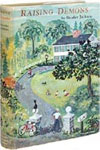Herbert Hoover Drafts Note, and Fredtjof Nansen Sends Letter to Vladimir Lenin, Trying to Get Lenin to Accept Food Aid for Starving Russians During the Russian Civil War
HERBERT HOOVER
From
Seth Kaller Inc., White Plains, NY, U.S.A.
Seller rating 4 out of 5 stars
![]()
AbeBooks Seller since December 1, 2005
About this Item
Description:
Autograph Note, undated [April, 1919]. Cover sheet: Draft note (undated) / Dr. Nansen to Lenin in / Mr. Hoovers handwriting. 1 p., 8 1/4 x 10 1/2 in. #24849 With FRIDTJOF NANSEN, Typed Letter Signed, to VLADIMIR LENIN, Paris, France, April 17, 1919. 4 pp., 8 1/4 x 10 3/4 in. This compound letter includes Nansens proposal for Russian relief to the Big Four allied leaders, their response, and his proposal to Lenin. It is a remarkable compilation of the prospects for and obstacles to efforts to ease Russian suffering. "The Government and peoples whom we represent would be glad to cooperate, without thought of political, military or financial advantage, in any proposal which would relieve this situation in Russia."To combat starvation in Europe during World War I, President Woodrow Wilson created the United States Food Administration by executive order. Under the direction of Herbert Hoover, it became one of the most efficient and successful governmental initiatives in American history. More than 5 million Russians died of starvation before food aid was allowed in 1921. Historical BackgroundAlthough Norway, like Sweden and Demark, declared its neutrality during the war, its loss of overseas trade led to food shortages. In 1917, Norway sent explorer and scientist Dr. Fridtjof Nansen to the United States, where after months of discussion, he obtained food supplies in return for the establishment in Norway of a rationing system.In Russia a pair of revolutions in 1917 left the Bolsheviks led by Vladimir Lenin in power, and Lenin ended Russian participation in World War I by March 1918. Civil war erupted within Russia, which continued for several years, but the Bolsheviks emerged victorious as the Communist Party, which led to the creation of the Union of Soviet Socialist Republics in 1922.By the spring of 1919, Russia had been out of the war for a year, but the civil war created havoc, and millions neared starvation. Hoover needed a "neutral executive" like Nansen to serve as an intermediary with the Russians. On April 3, Nansen sent a letter (drafted by Hoover), to President Wilson and the other members of the Big Four, proposing the plan and, after obtaining approval, wired the offer to Lenin on April 17. The second paragraph of this page of draft notes appears verbatim as the last paragraph of Nansen's letter to Lenin. The French, unwilling to do anything to keep the Bolsheviks in power, never sent Nansen's telegram to Lenin. The offer was resent, by radio on May 3. The Russians' response on May 14 was also blocked by the French, but picked up by radio and relayed to Hoover. Russia's refusal to stop fighting until they had achieved their objectives blocked the proposed plan.Two years later, an even deeper famine struck Russia. By the time it was over, it killed more than 5 million people, primarily in the Volga and Ural River regions. Unlike in 1919, Lenin allowed outside aid, or the death toll would have been even more horrific. In August 1921, the International Committee for Russian Relief (ICRR) was organized in Geneva, with Nansen as its High Commissioner. Hoover's American Relief Administration provided the bulk of the aid that went to Russia during 1922 and 1923, but the ICRR fed hundreds of thousands as well.These documents illuminate an incredible period of world history, bridged here briefly by a single man, with no agenda other than a humanitarian desire to feed the starving.Vladimir Lenin (1870-1924) was born Vladimir Ilyich Ulyanov to a wealthy, middle-class family in Simbirsk. After his brother was executed in 1887 for attempting to assassinate the emperor, Lenin turned to revolutionary socialist politics. Arrested for sedition in 1897 and exiled for three years, he later moved to Western Europe, where he became a prominent political theorist. He hoped that World War I would turn into a European proletarian revolution, and when the February Revolution ousted the czar in 1917, Lenin. (See website for full description). Seller Inventory # 24850
Bibliographic Details
Title: Herbert Hoover Drafts Note, and Fredtjof ...
Publication Date: 1919
Binding: No binding
Condition: Fine
Book Type: Autograph Note
AbeBooks offers millions of new, used, rare and out-of-print books, as well as cheap textbooks from thousands of booksellers around the world. Shopping on AbeBooks is easy, safe and 100% secure - search for your book, purchase a copy via our secure checkout and the bookseller ships it straight to you.
Search thousands of booksellers selling millions of new & used books
New & Used Books
New and used copies of new releases, best sellers and award winners. Save money with our huge selection.
Rare & Out of Print Books
From scarce first editions to sought-after signatures, find an array of rare, valuable and highly collectible books.



